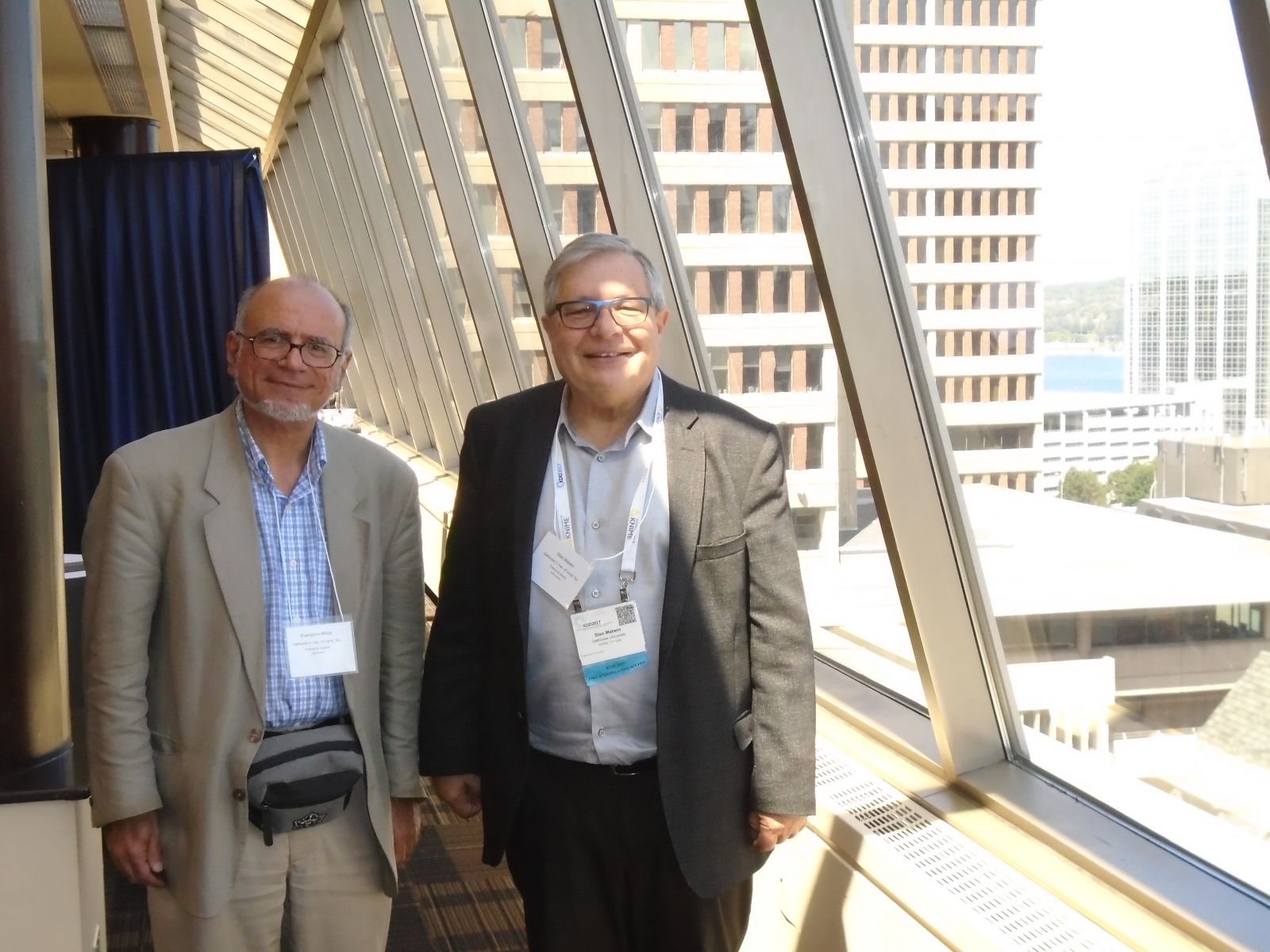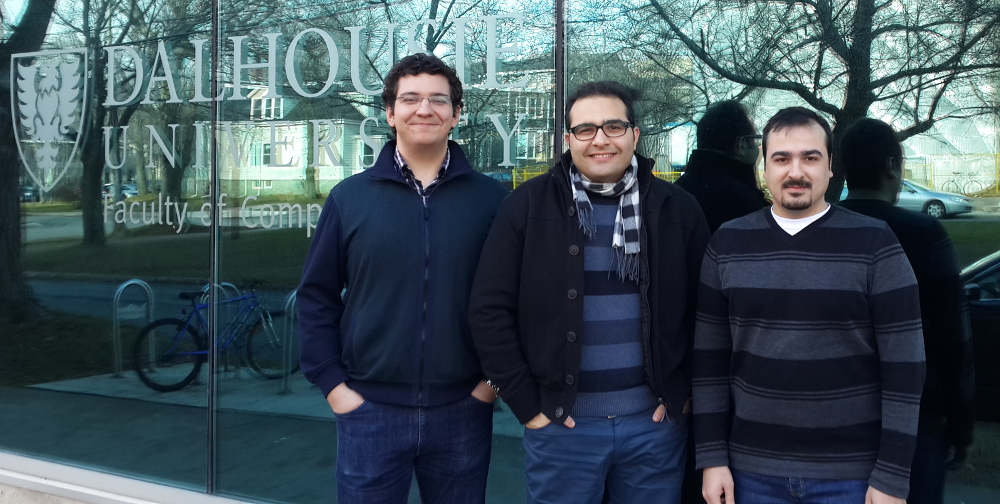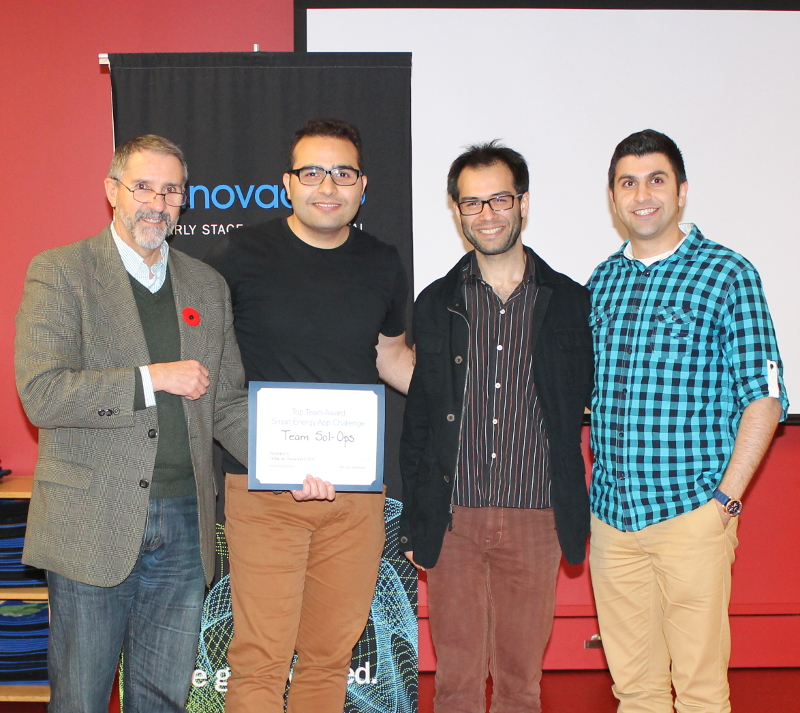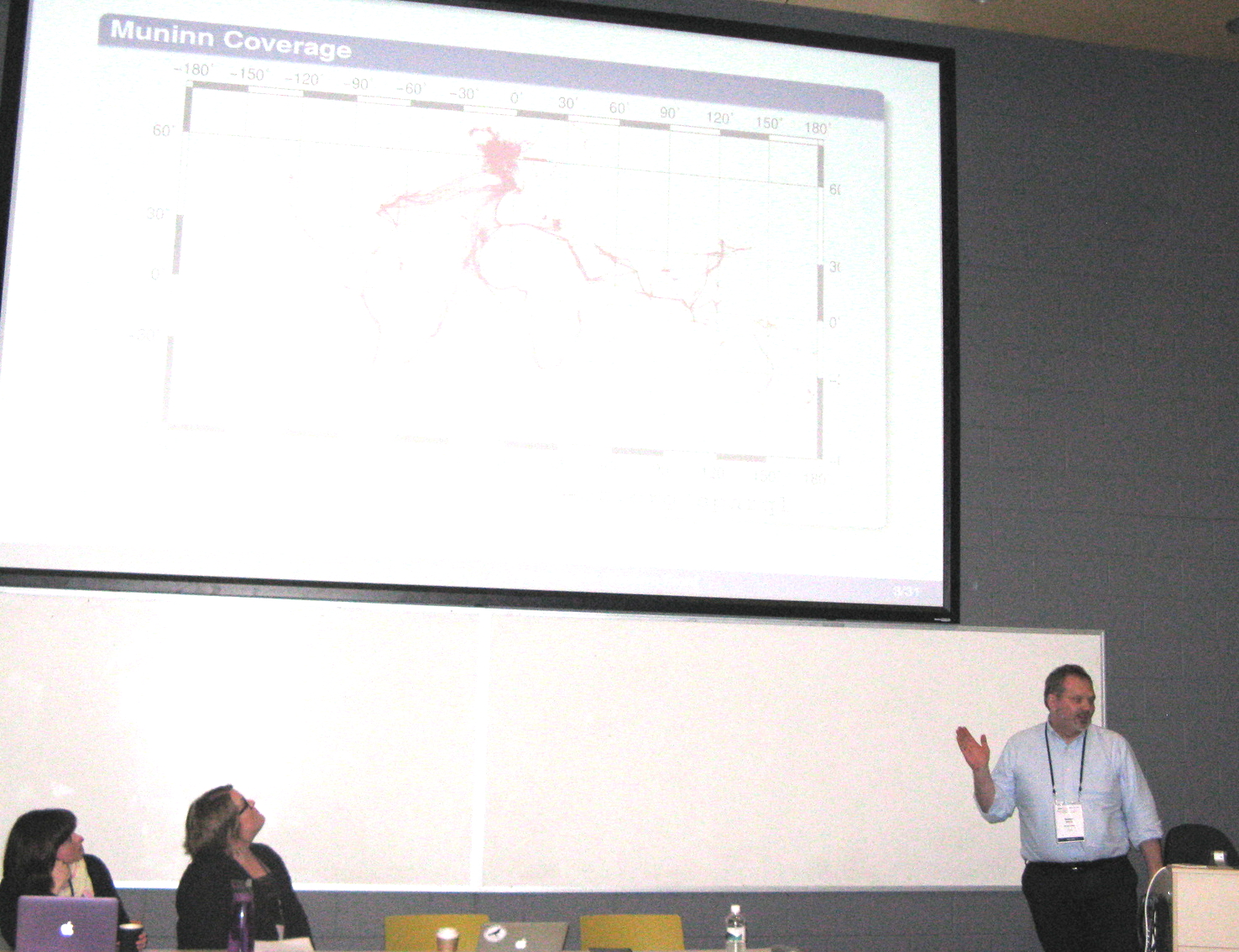Over 1,000 of the world's leading edge researchers and practitioners in big data are coming to Halifax for the 2017 Conference on Knowledge Discovery and Data Mining.
Stan Matwin, Canada Research Chair (Tier 1) at the Faculty of Computer Science, Dalhousie University and the director of the Institute for Big Data Analytics, announced today, March 9, that Halifax was the successful bidder. The conference, with Dr. Matwin as the general chair and Evangelos Milios of Dalhousie University as the local chair, will be held in the new Halifax Convention Centre, which opens in 2017.
The bid was led by the Institute for Big Data Analytics and the Halifax Convention Centre, in collaboration with a local host committee of academic, government and industry representatives.
"This announcement is further evidence that the Institute for Big Data Analytics has established Dalhousie and Halifax as leaders in the global fields of data science and big data analytics," said Dalhousie president Richard Florizone.
"This is a great opportunity for Dalhousie -- as well as other local organizations and institutions -- to showcase the world-class research, ongoing collaboration and pool of talent we have here in the region to national and international audiences," said Dr. Matwin
Halifax now ranks amongst top cities who have previously hosted the conference, including:
-- Sydney, Australia
-- New York City, New York
-- Beijing, China
-- Paris, France
"We're proud to partner and collaborate with our local experts to host this conference and showcase Nova Scotia's strengths in big data to the world," said Scott Ferguson, president and CEO of Trade Centre Limited, the Crown Corporation that manages the convention centre. "This is an exciting opportunity for our industry, academic and research communities to highlight their work and connect with their global counterparts."
Nova Scotia has a booming information technology sector and the province is quickly establishing itself as an international hub of excellence in big data research. Hosting this conference will allow the local sector to benefit from top academic research and industrial presence aimed at promoting collaboration and growth in big data analytics.
First established in 1995, the Knowledge Discovery and Data Mining conference is the premier international forum for data mining and big data research, bringing together practitioners from academia, industry, and government to share their ideas, research results and experiences. Sponsors of note include Microsoft, Yahoo, Deloitte, Accenture, Facebook, LinkedIn, Google and IBM. The 2016 conference will take place in San Francisco.
.png)



 In August the world’s premier interdisciplinary conference on data science, data mining, knowledge discovery, large-scale data analytics, and big data, KDD2017, came to Halifax, chaired by Stan Matwin, Director of the Institute for Big Data Analtyics in collaboration with Shipeng Yu of LinkedIn and a team of organizers including Local Chair Evangelos Milios. This was no small accomplishment; the conference has typically been hosted in some of the biggest cities in the world, including Beijing, Sydney, New York and Paris. Being invited to host this year’s conference was a significant recognition of the strength of our team in this field and the strength of the proposal they had put forward. It was also a big event for the city of Halifax and the Province of Nova Scotia. In his opening remarks Mayor Mike Savage conferred upon Stan and Evangelos the honorary title of Ambassadors for the City of Halifax. As the conference progressed researchers in both academia and industry in this province benefited from access to the latest research and the leading pracitioners in the field.
In August the world’s premier interdisciplinary conference on data science, data mining, knowledge discovery, large-scale data analytics, and big data, KDD2017, came to Halifax, chaired by Stan Matwin, Director of the Institute for Big Data Analtyics in collaboration with Shipeng Yu of LinkedIn and a team of organizers including Local Chair Evangelos Milios. This was no small accomplishment; the conference has typically been hosted in some of the biggest cities in the world, including Beijing, Sydney, New York and Paris. Being invited to host this year’s conference was a significant recognition of the strength of our team in this field and the strength of the proposal they had put forward. It was also a big event for the city of Halifax and the Province of Nova Scotia. In his opening remarks Mayor Mike Savage conferred upon Stan and Evangelos the honorary title of Ambassadors for the City of Halifax. As the conference progressed researchers in both academia and industry in this province benefited from access to the latest research and the leading pracitioners in the field. 
 Congratulation to Masters student Hossein Sarshar and Research Assistant Pedram Adibi from the Institute for Big Data Analytics, and their colleague, Dalhousie alumnus Mehran Zamani, who, as Team Sol-Ops, won first prize in the Smart Energy Apps Challenge sponsored by Innovacorp, HRM, NSCC, Shiftkey Labs and Dalhousie University. The challenge was to create an app which made use of the data collected by Halifax Solar City on a number of parameters relating to installed solar hot water systems. Team Sol-Ops created an app which made use of techniques of computer science, data science and engineering to provide customers with an analysis of their usage of hot water, and recommendations for changing that behaviour to maximize the environmental and economic benefits they could receive from their systems. It took 6 weeks to create the winning app, beating 10 other teams and claiming the $6000 first prize. Success in the competition may also be the stepping stone to other opportunities as the team finds themselves in conversations with investors and other organizations who are taking in interest in the commercial potential of their creation.
Congratulation to Masters student Hossein Sarshar and Research Assistant Pedram Adibi from the Institute for Big Data Analytics, and their colleague, Dalhousie alumnus Mehran Zamani, who, as Team Sol-Ops, won first prize in the Smart Energy Apps Challenge sponsored by Innovacorp, HRM, NSCC, Shiftkey Labs and Dalhousie University. The challenge was to create an app which made use of the data collected by Halifax Solar City on a number of parameters relating to installed solar hot water systems. Team Sol-Ops created an app which made use of techniques of computer science, data science and engineering to provide customers with an analysis of their usage of hot water, and recommendations for changing that behaviour to maximize the environmental and economic benefits they could receive from their systems. It took 6 weeks to create the winning app, beating 10 other teams and claiming the $6000 first prize. Success in the competition may also be the stepping stone to other opportunities as the team finds themselves in conversations with investors and other organizations who are taking in interest in the commercial potential of their creation.